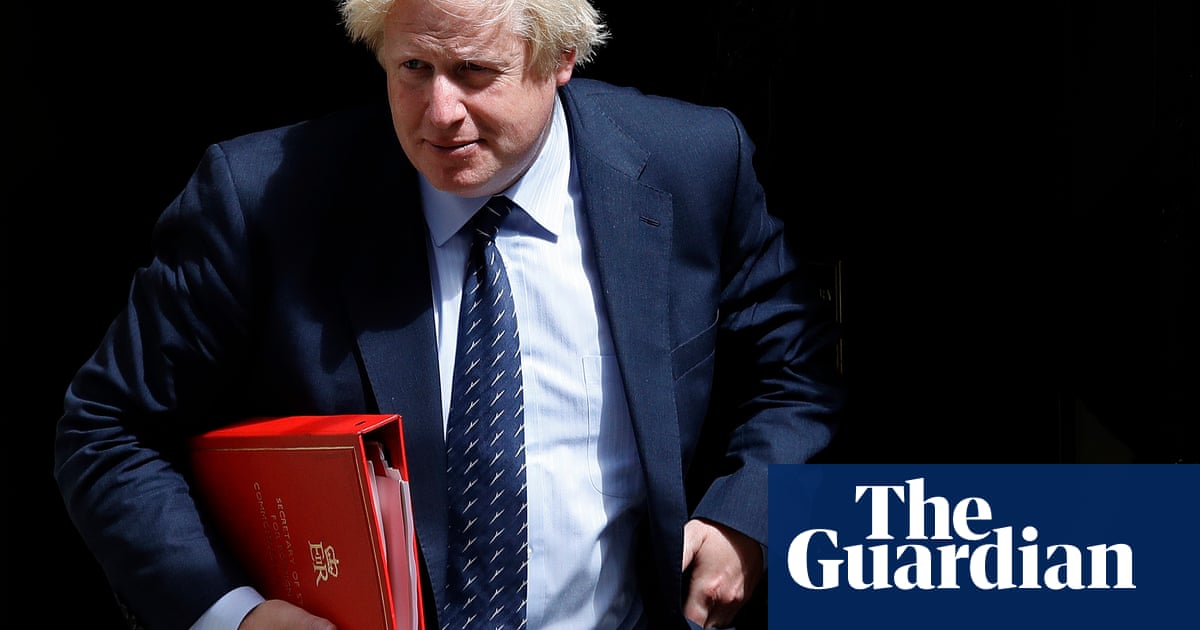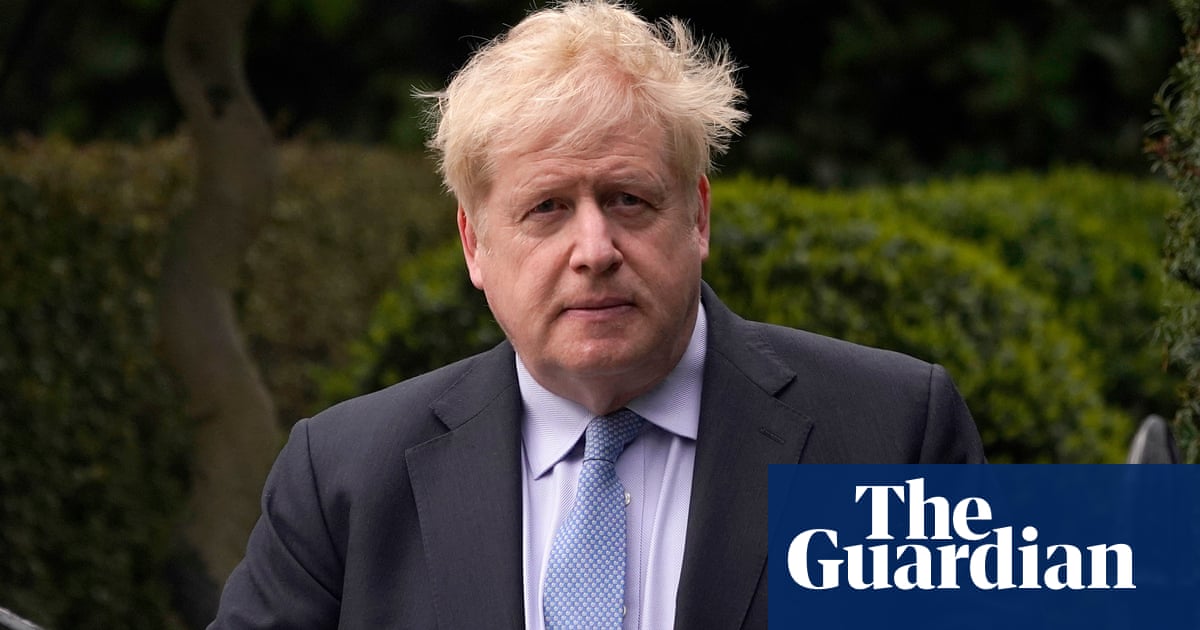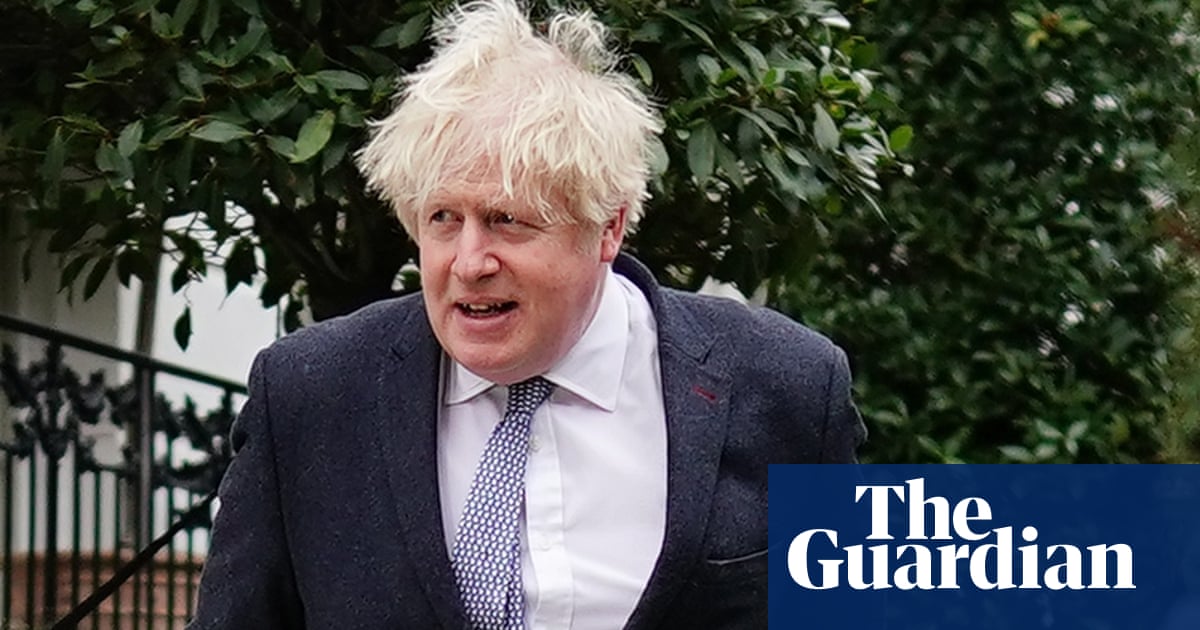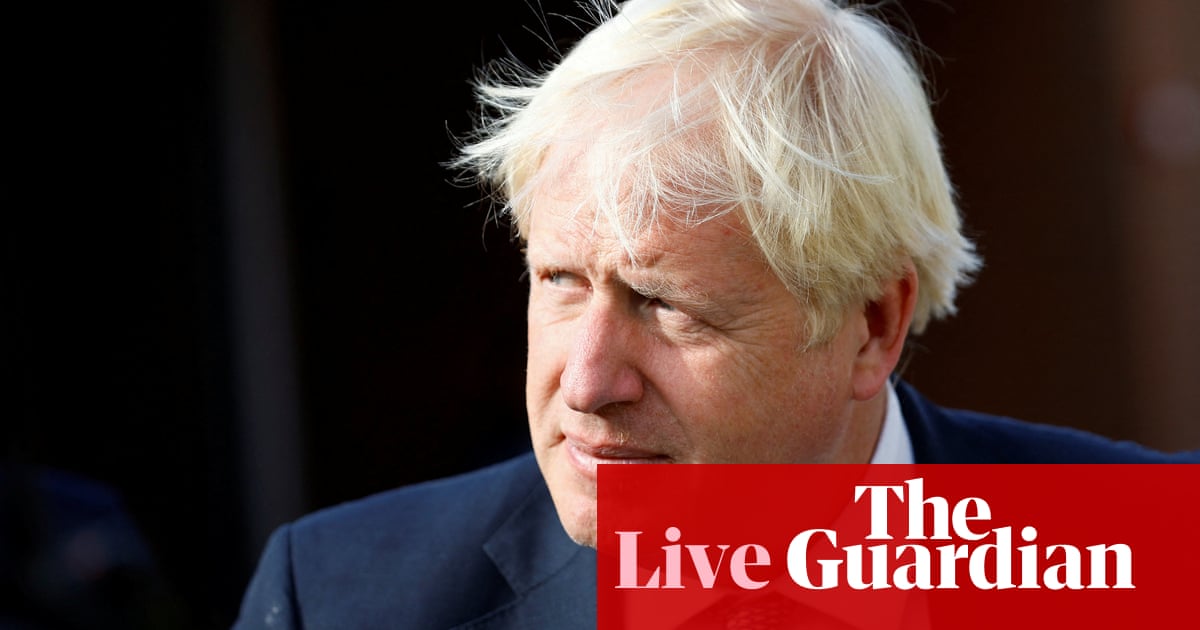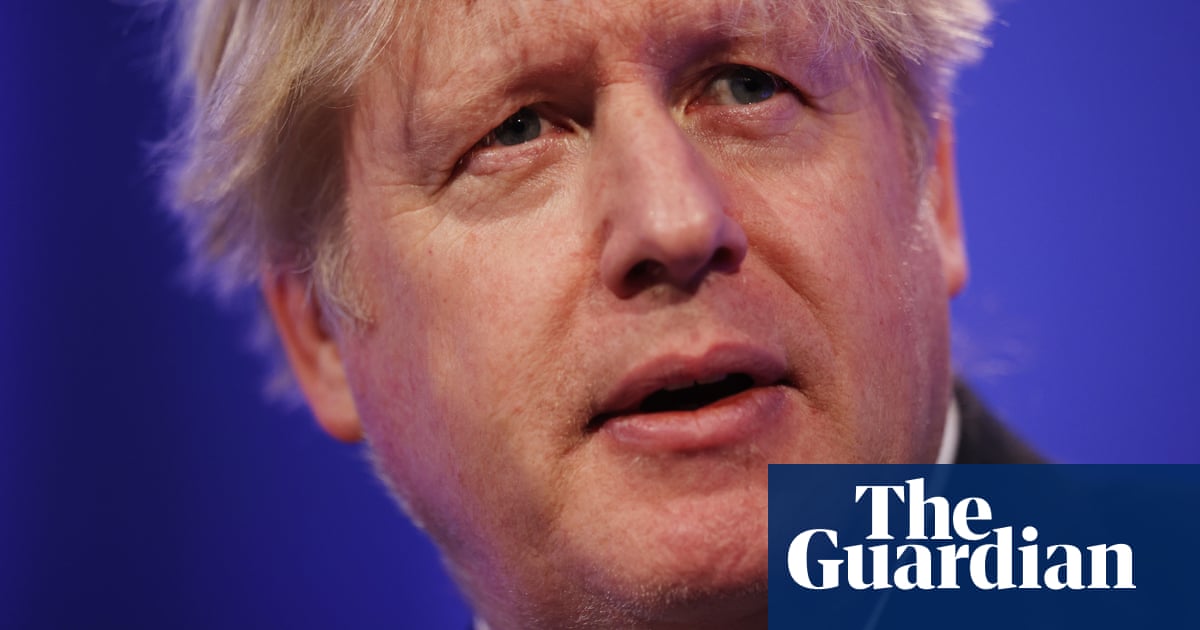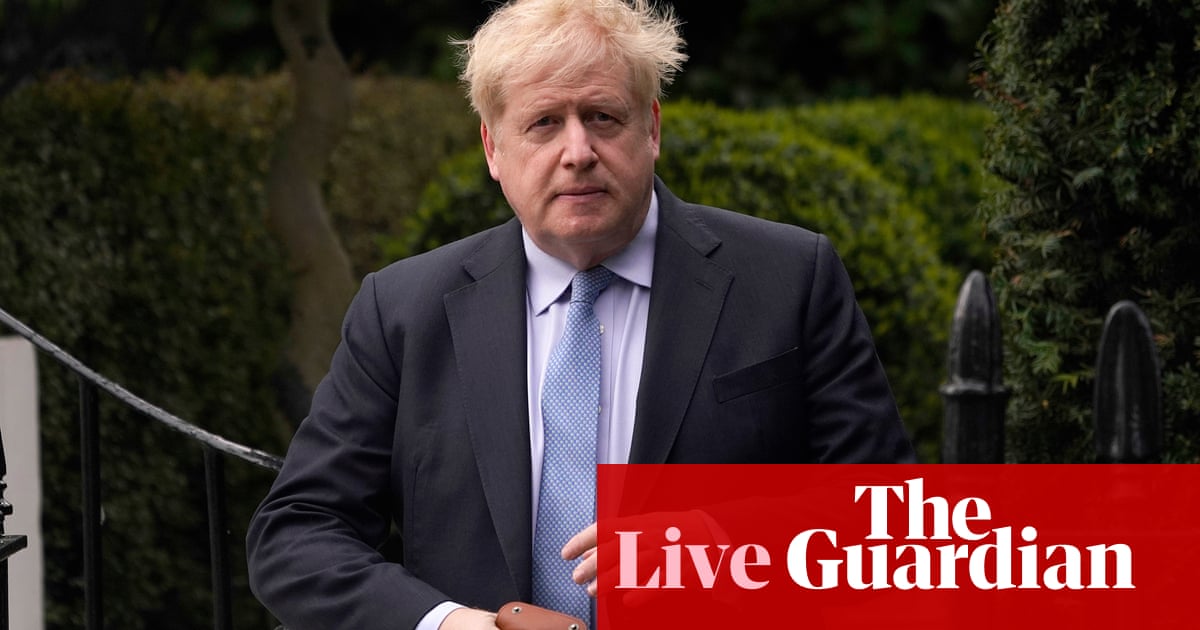
Johnson says he will provide unredacted WhatsApps directly to Inquiry
Boris Johnson will provide unredacted WhatsApps to the Covid 19 inquiry directly, he said in a letter to to the chair on Friday.
“The government yesterday decided to take legal action. It was not my decision to do so,” wrote Johnson. “While I understand the government’s position, I am not willing to let my material become a test case for others when I am perfectly content for the inquiry to see it.”
In the letter addressed to Heather Hallett, Johnson said he would also like to share “any material” on his old phone. Johnson said he was previously told he could no longer access the device safely.
“In view of the urgency of your request I believe we need to test this advice, which came from the security services,” the letter said.
Johnson said he no longer has physical access to his notebooks which were removed from his office by the Cabinet Office, and said he has requested for them to be shared with the inquiry directly.
Closing summary
Here is a round-up of the day’s main headlines:
Boris Johnson bypassed the government’s attempt to keep his unredacted WhatsApp messages secret by handing them over directly to the Covid inquiry. Johnson said he was “not willing to let my material become a test case for others”. Johnson also said he had asked the Cabinet Office to help turn his previous phone back on securely to search “for all relevant material”, which he promised to pass directly to the inquiry chair, Heather Hallett.
The potential risks of accessing Boris Johnson’s old mobile phone to retrieve WhatsApps for the Covid-19 inquiry were “minimal”, the security expert Alan Woodward told BBC Radio 4’s World At One programme. “His phone wasn’t hacked, it hadn’t been compromised or any such thing.”
Dame Elan Closs Stephens has been appointed as the acting chair of the BBC, the government announced after Richard Sharp resigned from the position earlier this year following a report which found he breached the governance code for public appointments.
Civil servants have been offered a one-off £1,500 payment from the government as part of a new pay offer to try to prevent industrial action. Ministers had initially offered a pay rise of up to 4.5%, with an extra 0.5% for those on lower pay bands. The pay rise remains unchanged but the one-off payment has been put on the table “in recognition of the pressures felt during the 2022-23 pay year”.
Two senior Conservatives have expressed doubts over Rishi Sunak’s controversial decision to launch legal action against the public inquiry into the government’s handling of Covid-19. George Freeman, the science minister, said he believed the challenge was unlikely to succeed, while the former Downing Street chief of staff Gavin Barwell said it should not have been launched at all.
Andy Burnham on Thursday evening called for MPs to be elected by proportional representation as part of Labour’s plans for a “radical rewiring of Britain”. Labour has proposed sweeping reforms to how UK democracy works, including replacing the House of Lords with a directly elected senate for the UK’s nations and regions.
The home secretary, Suella Braverman, has been asked to urgently clarify why a large group of asylum seekers were left on the street in Westminster for two nights running. In a letter to Braverman, the leader of Westminster city council expressed his deep concern that about 40 refugees had been placed in the borough on Wednesday night “without appropriate accommodation or support available”.
Labour promised to reverse changes to the student loan system being planned by the Conservative government in a way that could reduce monthly repayments for graduates.
For a prime minister who phoned it in, Boris Johnson is having a lot of trouble handing over one mobile
For Opinion, Marina Hyde writes about the device Johnson used most during the pandemic ,which, conveniently, cannot be switched on due to security reasons
Did you see that story about the Indian government official who drained an entire reservoir to retrieve a phone? Amazing that it turned out to be not even the most ludicrous government-phone-retrieval story this week.
As you may by now have read, Boris Johnson can’t give the phone he used for most of the pandemic to the Covid inquiry because of security reasons. He says he still has the phone – then again, he says a lot of things. I think the phone has faked its own death and is living in sin beneath the North Sea with Rebekah Vardy’s agent’s phone. Can we drain the North Sea? Keir Starmer could suggest it’s one of the things we should do instead of drilling in it.
Anyway, Johnson got a new phone in April 2021, a date which is obviously after all the national lockdowns and various Covid policy catastrophes. It’s good that we now do vital government business on burner phones, just like drug dealers. The WhatsApp messages from Johnson’s second phone are the only ones available to Heather Hallett’s inquiry – and only after the Cabinet Office has redacted them, though the former PM now says he’s going to send them to her directly.
As for why Johnson got a new phone in April 2021, it was because it was discovered that the prime minister’s personal mobile number had been freely available on the internet for 15 years. A normal thing to happen in our normal country. I imagine Johnson fought hard against the handset’s decommissioning – it must have been the mistress equivalent of the ghost containment unit in Ghostbusters. The ghosted women’s containment unit.
Back then, however, chancellor Rishi Sunak and cabinet secretary Simon Case were among the many government voices dismissing the idea that the PM’s cock-up was remotely serious. So imagine no one’s surprise yesterday to read Johnson’s spokesman declaring: “After a well publicised security breach in April 2021, Mr Johnson was given advice by security officials never to turn on the old device. The effect is that historic messages are no longer available to search.”
Ministers have backed down in their dispute with civil servants over pay, offering less senior officials a one-off payment of £1,500 to help with the cost of living.
The Prospect union welcomed the offer on Friday, which followed talks between the Cabinet Office minister, Jeremy Quin, and union officials earlier in the day.
Civil service unions had previously condemned the government for not offering their members the same lump sum offered to teachers and health workers. Civil servants have suspended strike action planned for next week.
The home secretary, Suella Braverman, has been asked to urgently clarify why a large group of asylum seekers were left on the street in Westminster for two nights running.
In a letter to Braverman, the leader of Westminster city council expressed his deep concern that about 40 refugees had been placed in the borough on Wednesday night “without appropriate accommodation or support available” and no prior communication with the local authority.
The group apparently refused to enter a Pimlico hotel where the Home Office had asked them to sleep “four people per room”.
On Friday morning, about 20 people remained outside the Comfort Inn in protest at the cramped conditions inside, according to the council, with pictures showing suitcases and blankets strewn across the pavement.
The potential risks of accessing Boris Johnson’s old mobile phone to retrieve WhatsApps for the Covid-19 inquiry are “minimal”, a cybersecurity expert has said.
“His phone wasn’t hacked, it hadn’t been compromised or any such thing,” Alan Woodward, a professor at the University of Surrey, told BBC Radio 4’s World At One programme.
“Asking the Cabinet Office to help him do it securely is quite sensible – and they can.
“They’ve got the facilities to do it. It really wouldn’t take much to turn the phone on and get those messages off quite safely.”
He added that “in terms of recovering those messages, it’s perfectly possible to do that without exposing it to the potential threat”.
Analysis: Why does Rishi Sunak want to limit scope of Covid inquiry?
When Boris Johnson first announced a public inquiry into the handling of the Covid pandemic, many observers saw it as an attempt to kick difficult questions into the long grass. Two years on, in a twist that may well amuse the former prime minister, that long grass is littered with political bear traps for Rishi Sunak.
Such are the complexities of this week’s developments, it can be easy to overlook the sheer strangeness of what is actually going on: a government going to the high court to try to limit the scope of an official inquiry it set up in the first place.
In May 2021, when Johnson announced plans for the inquiry – albeit one that would not begin for a year – he billed it as an opportunity “to get the answers that the people of this country deserve”.
Two prime ministers on, we are in the deeply curious position of Johnson, not a politician renowned for welcoming scrutiny, pledging to do whatever he can to give the inquiry all the information possible, while Sunak and his ministers launch a court battle to do the opposite.
Civil servants offered one-off £1,500 payment by government as part of a new pay offer to prevent industrial action
Civil servants have been offered a one-off £1,500 payment from the government as part of a new pay offer to try to prevent industrial action.
Ministers had initially offered a pay rise of up to 4.5%, with an extra 0.5% for those on lower pay bands. The pay rise remains unchanged but the one-off payment has been put on the table “in recognition of the pressures felt during the 2022-23 pay year”.
Prospect union’s general secretary, Mike Clancy, welcomed the offer, saying it “in principle addresses the three issues at the heart of this dispute”.
He said: “This payment will help to address the cost of living crisis they have been facing.
“For too long they have been at the back of the queue when it comes to public sector pay, and throughout this dispute we have been fighting for a deal comparable with that in the rest of the public sector.”
Civil servants were due to go on strike on 7 June but this was called off after Prospect and FDA, the unions who had initially called for ballots and strike action, entered new pay talks with the government. PCS, the biggest civil service union with more than 100,000 members, also attended talks.
In a statement, the government said the original offer “amounted to the highest remit in over 20 years”.
It added: “Nonetheless, the government recognises the challenges that many civil servants, in particular those on lower salaries, have faced over the last year because of high inflation.”
The government also announced a moratorium on any changes to the civil service compensation scheme and said it was committed to avoiding compulsory redundancies wherever possible.
FDA’s general secretary, Dave Penman, said: “For the first time in many years, we have reached a tangible, positive outcome for the civil service which compares well with the rest of the public sector.
“That, in itself, is no mean feat and I want to recognise the role played by ministers and the leadership of the civil service in achieving it.”
Charlotte Nichols, the Labour MP for Warrington North and former shadow minister for women and equalities, has shared an article from the Times on Twitter about a “rotten” culture in the House of Commons.
The article cites the presence of the suspended Labour MP Geraint Davies – who lost the whip after facing sexual harassment allegations and is one of 14 MPs sitting as independents who did not leave their party “by choice” – as a “symptom of the sickness pervading a broken parliamentary culture”.
Dame Elan Closs Stephens has been appointed as the acting chair of the BBC, the government has announced, after Richard Sharp resigned from the position earlier this year following a report that found he breached the governance code for public appointments.
Dame Elan Closs Stephens appointed acting chair of the BBC
Dame Elan Closs Stephens has been appointed as the acting chair of the BBC, the government has announced after Richard Sharp resigned from the position earlier this year following a report which found he breached the governance code for public appointments.
On Friday, the Department for Culture, Media and Sport announced Stephens will lead the BBC board from 27 June for 12 months, or until a new permanent chair has been appointed, whichever is sooner.
“It’s a huge honour to be appointed by the secretary of state as acting chair and I am grateful to my fellow board members for putting their trust in me,” she said.
“As a board, we will champion the licence fee-payer across all of the UK; ensure the BBC is a vital partner for the UK creative industries; maintain trust and drive change to make the BBC fit for a fast-changing media landscape.
“There is much work to be done.”
Stephens has been a member of the BBC’s governing body since 2010, first serving as a member for Wales on the BBC Trust and then as the Welsh member of the BBC board.
“I am pleased that Dame Elan will take up the position of acting chair of the BBC and has the unanimous support of the board,” said culture secretary Lucy Frazer. “When she takes over, Dame Elan will provide stability in the leadership of the BBC while a process to appoint a new permanent chair is run.”
Sharp resigned after being found to have breached public appointment rules for failing to declare a connection to a secret £800,000 loan for the UK’s former prime minister Boris Johnson.
While this breach of the rules did not necessarily invalidate his appointment to the role at the public service broadcaster, Sharp said his position was no longer tenable and called it a “distraction from the corporation’s good work”.
Sharp’s decision to resign in April came as the BBC faces suggestions that it has become too close to the Conservative government after years of sustained political pressure and threats to its funding.




